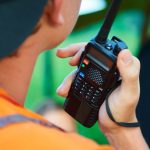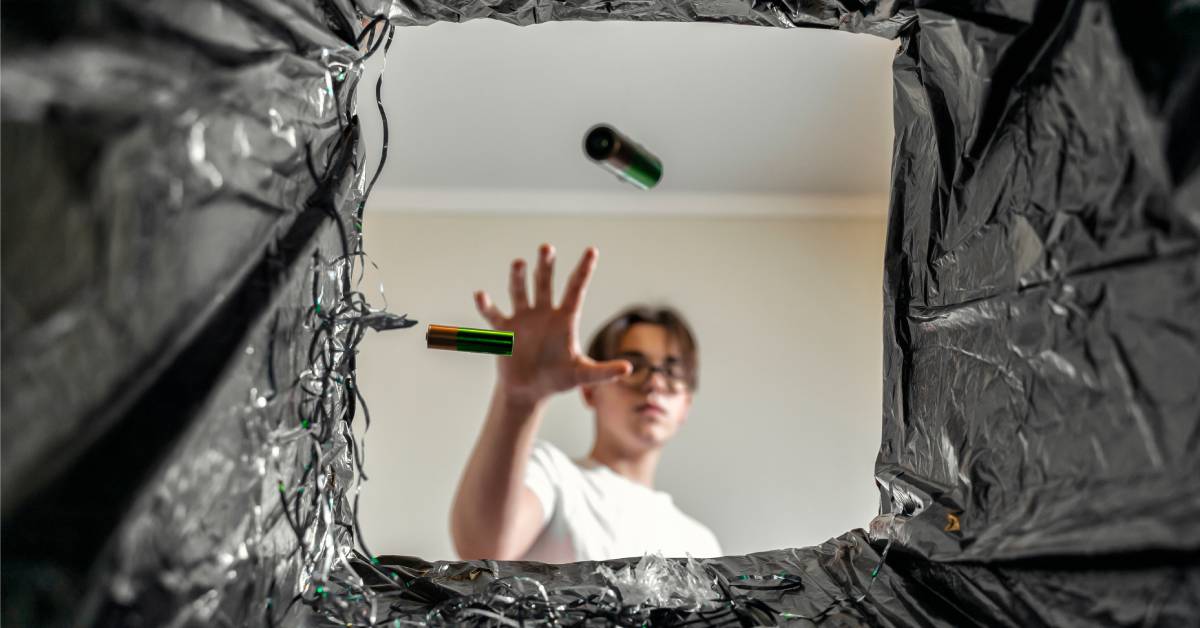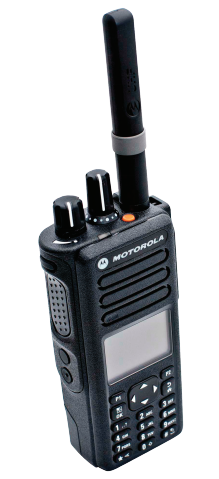Two-way radios offer convenient and reliable communications that you can’t get anywhere else. However, they often use batteries that need replacement. Without proper disposal, these batteries can become a real problem.
Safely disposing of old two-way radio batteries is crucial for reducing hazardous waste. We’ll walk you through everything you need to know, from understanding the types of two-way radio batteries to the best disposal practices and future trends in battery technology.
Understanding Two-Way Radio Batteries
Types of Batteries in Two-Way Radios
Two-way radios typically use one of three types of batteries: nickel-cadmium (NiCd), nickel-metal hydride (NiMH), and lithium-ion (Li-Ion). Nickel-cadmium batteries are durable and have a long life but suffer from the “memory effect,” which reduces their capacity if not fully discharged. Nickel-metal-hydride batteries have a greater capacity than nickel-cadmium and are less prone to memory effect but have a shorter lifespan. Lithium-ion batteries are the most advanced, offering high capacity, light weight, and no memory effect, but they can be more expensive.
Factors That Affect Battery Life and Performance
Battery life and performance hinge on several factors, including usage patterns, charging habits, and environmental conditions. Regularly overcharging or undercharging your radio battery can degrade its lifespan. Extreme temperatures, whether hot or cold, also negatively impact battery performance. Understanding these factors can help you extend the life of your two-way radio batteries, reduce the need for frequent replacements, and minimize waste.
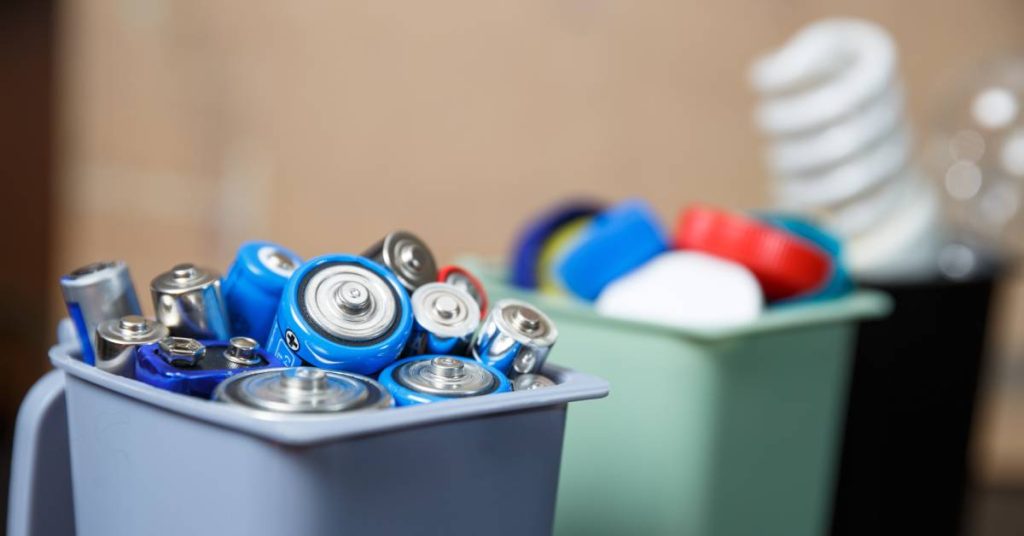
Why Safe Disposal Matters
Environmental Impact of Improper Battery Disposal
Improper disposal of two-way radio batteries can have severe environmental consequences. Batteries contain toxic chemicals like lead, mercury, and cadmium, which can leach into soil and water, contaminate ecosystems, and harm wildlife. Incinerated batteries release toxic gases that contribute to air pollution. By safely disposing of your old batteries, you can mitigate these risks.
Health and Safety Concerns Associated With Old Battery Disposal
Improper battery disposal also poses significant health risks. Toxic chemicals can leak from batteries and enter drinking water supplies, posing serious health hazards to humans. Handling old or damaged batteries without following safety precautions can also result in chemical burns or other injuries. Therefore, understanding and adhering to safe disposal practices is essential for both environmental and human health.
Cost Savings From Proper Battery Disposal
Investing your time and effort into properly disposing of two-way radio batteries can lead to cost savings in the long run. By recycling old batteries, you contribute to a circular economy that lowers production costs for new batteries. This ultimately decreases prices for consumers. Moreover, avoiding fines and penalties associated with improper disposal can protect your finances, making it clear that eco-friendly choices not only benefit the environment but are also economically advantageous.
Best Practices for Safe Disposal
By researching best practices for safe disposal, you can find the best methods available in your area. Here’s what to know:
1. Identify Battery Types and Local Regulations
Before disposing of old two-way radio batteries, identify the battery type and be aware of local disposal regulations. Many regions have guidelines for battery disposal that vary by battery type. Familiarizing yourself with these regulations will ensure you are making compliant choices regarding disposal.
2. Use Designated Recycling Facilities
Always opt for designated recycling facilities or collection sites for battery disposal. These facilities can handle hazardous waste safely and will recycle or dispose of used batteries in an environmentally friendly manner. Many electronics or hardware stores offer recycling programs, making it easy to find a nearby option.
3. Remove Batteries Before Disposing of Old Devices
If you are disposing of a two-way radio or other electronic devices, remove the batteries before doing so. This prevents leakage and ensures batteries are treated separately according to safe disposal methods. Some retailers accept old devices along with their batteries for recycling, so check for those options.
4. Store Batteries Until Disposal
If you cannot dispose of your old batteries immediately, store them until you can. Keep them in a cool, dry place, ideally in a non-conductive container and away from metal objects, to prevent reactions.
5. Educate Yourself and Others
Raising awareness about battery disposal within your community can foster a culture of environmental responsibility. Share information about safe disposal practices, recycling programs, and the environmental impacts of improper disposal. Educating family, friends, and colleagues can keep batteries out of landfills and promote sustainable practices.
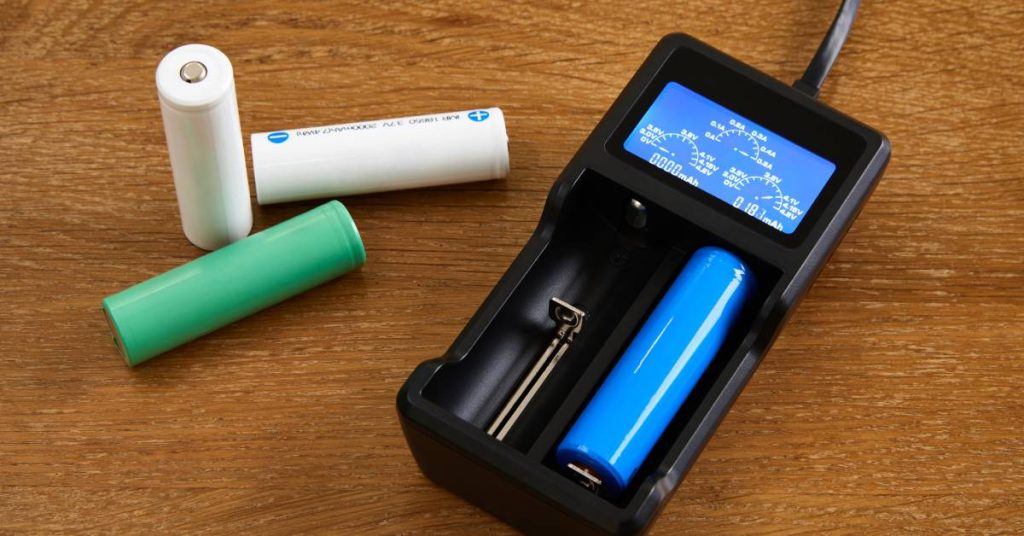
Tips for Extending Battery Life and Reducing Waste
Extending the life of your two-way radio batteries can maximize battery life and reduce waste. Here are some tips:
- Avoid overcharging batteries by unplugging them once fully charged. Use a smart charger, if possible, which automatically stops charging when the battery reaches full capacity.
- Fully discharge NiCd batteries to avoid the memory effect. NiMH and Li-Ion batteries benefit from partial discharges.
- Keep old batteries in a cool, dry place before disposal, and avoid direct sunlight and moisture exposure to maintain their integrity.
- Keep two-way radios and batteries away from extreme heat or cold to enhance performance and lifespan.
- Periodically clean the battery terminals with a soft cloth for a proper connection and enhanced conductivity.
- When purchasing replacement batteries, choose reputable brands that offer longevity and great performance.
- When installing new batteries in your two-way radios, do it correctly to avoid issues with performance and safety.
- Always turn off your two-way radio when it’s not in use to conserve battery life.
- Use high-drain functions, such as backlighting and alarms, sparingly to prolong battery life.
- Always look for recycling opportunities for old batteries. This not only reduces waste but also supports the safe disposal of hazardous materials.
Private and Public Partnerships: How Companies and Individuals Can Work Together
Effective battery disposal requires collaboration between private companies and the public. Businesses can implement recycling programs, offer take-back services, and educate their customers on safe disposal practices. Governments and community organizations can support these efforts by providing accessible recycling facilities and organizing awareness campaigns. Together, we can create a more sustainable approach to battery disposal.
Making Informed Decisions for Ourselves and the Environment
Safely disposing of old two-way radio batteries is key to protecting our planet and public health. By understanding the types of batteries, their lifespan, and best disposal practices, you can make informed decisions for yourself and the environment.
Are you looking for new batteries? A Kenwood radio battery from Battery Distributors will give your two-way a reliable power supply no matter how much you use your device!



